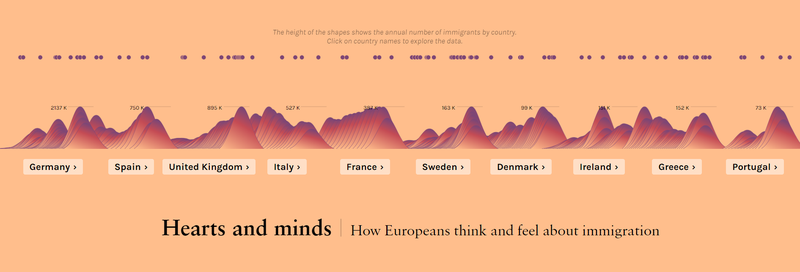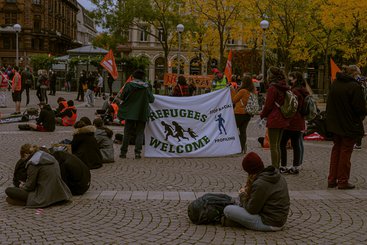This briefing presents an overview of the key features of migration and asylum policy in Italy, recent trends in migration patterns, public perceptions and political narratives on refugees and other migrants:
- Immigration as an issue in public opinion polls grew in importance considerably between 2015 and 2017 following the arrival of large numbers of refugees by sea, becoming the second most important issue for Italians. Since 2016, the salience of immigration has decreased, similar to trends across Europe.
- Italian survey respondents overestimate how many immigrants are in Italy. In 2017, Italian respondents on average estimated the proportion of non-European Union (EU) immigrants in Italy at 24.6%, whereas the actual figure was 7% – the highest error rate in Europe.
- In 2016, Italian respondents held the most hostile views towards migrants in Europe. More than half of respondents in a 2016 poll felt that refugees would increase the likelihood of terrorism in their country, and just under half believed refugees were more to blame for crime than other groups. Since 2016, however, negative attitudes have declined and positive attitudes increased. Segmentation data shows that half of the Italian population hold nuanced views or lack strong views about immigration.
- Italy’s ageing population and low birth rate mean there is a growing need for migrants. Migrants are needed to join the workforce, contribute to social welfare and ensure the sustainability of the pension system. They are also required to fill gaps in the elder care system, which is already extremely reliant on migrant care workers for home-based elderly care services.
- In order to engage with Italians and shift public narratives towards recognising the benefits of migration, debates must become less polarised and go beyond whether immigration is ‘good’ or ‘bad’. A more nuanced and holistic understanding is needed, addressing fears and misconceptions regarding the economy, security and different forms of identity.
This briefing is part of a wider project supported by the IKEA Foundation aimed at supporting public and private investors interested in engaging with migration and displacement.
About this series
Through a series of activities, dialogues and innovative communication and outreach initiatives, Public and political narratives on refugees and other migrants: implications for action maps recent research and evidence on public attitudes toward refugees and other migrants.
Hearts and minds: how Europeans think and feel about immigration

Explore our data visualisation: Hearts and minds: how Europeans think and feel about immigration which builds on this ongoing research, supported by the IKEA Foundation, analysing public and political narratives and attitudes towards refugees and other migrants in Europe.





